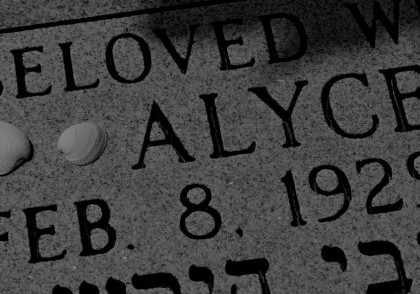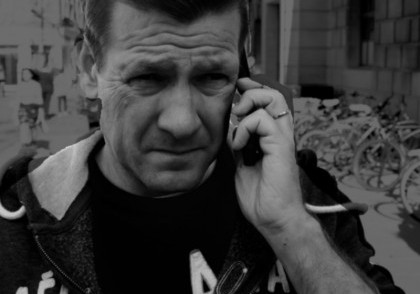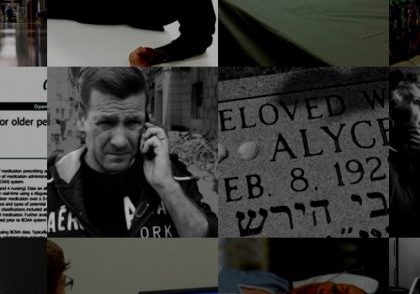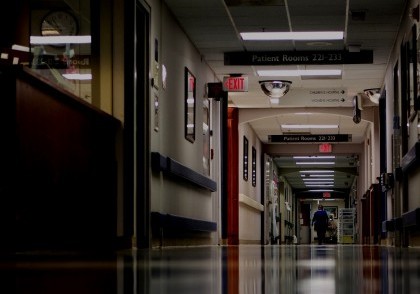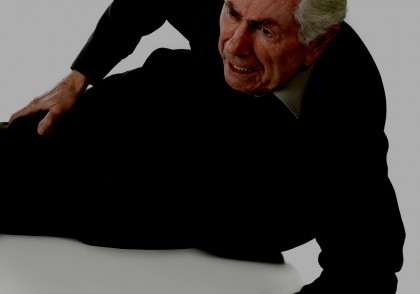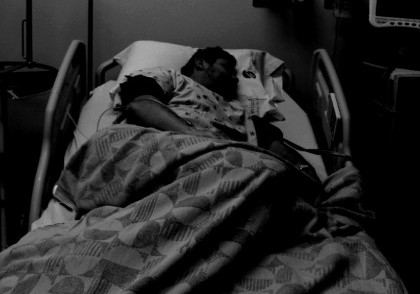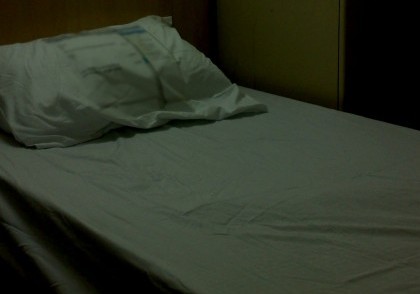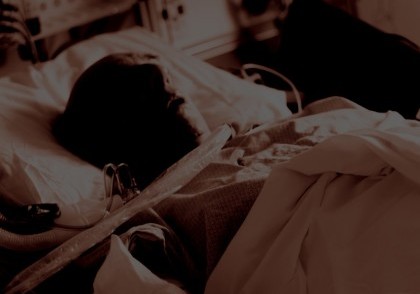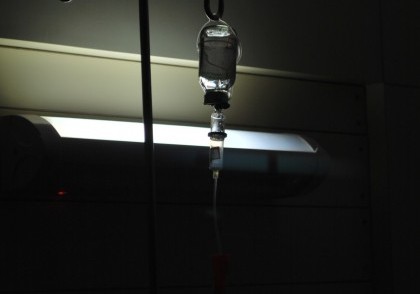The Agency for Healthcare Research and Quality estimates that about half of the 1.6 million nursing home residents across the country fall each year. A bad fall can lead to a significant injuries and a reduced quality of life. If your loved one has fallen because of the negligence of the nursing home staff, then you may decide to hold the nursing home responsible for your loved one's injuries by filing a personal injury lawsuit. This page will give an overview of the legal process as well as what types of compensation your loved one can recover.
Statute of Limitations for Nursing Home Fall Claims
One of the first things that you want to be aware of if you are seeking to file a lawsuit on behalf of your injured loved one is that there is a limited amount of time to file a lawsuit. This deadline is called the statute of limitations and it varies depending on the particular claim at issue. For a personal injury claim in New York, you generally have three years to file a law suit due to negligence. N.Y. C.P.L.R. § 214(5). However, there are exceptions to this rule that can extend or reduce the amount of time you have to bring a claim. The time to file a lawsuit will depend on the facts and circumstances of your case.
The Process Of A Nursing Home Fall Lawsuit
Every lawsuit is different, as every lawsuit has it's own unique set of facts. However, they generally progress in a similar manner. First a complaint is filed, then discovery is conducted, throughout the litigation process settlement negotiations take place, and if no agreement can be reached among the parties, the case may proceed to trial. Below each of these steps is explained in more detail.
Pre-Trial
Initial Complaint
To start a lawsuit, the plaintiff --the person who is filing the lawsuit-- files a complaint in the court with the proper jurisdiction over the case. The Complaint is "[t]he initial pleading that starts a civil action and states the basis for the court's jurisdiction, the basis for the plaintiff's claim, and the demand for relief." Black's Law Dictionary 323 (9th ed. 2009). This document is then served on the defendant in the case, who will then have an opportunity to respond by filing an Answer. An Answer is "[a] defendant's first pleading that addresses the merits of the case, usually by denying the plaintiff's allegations." Id. at 107. Additionally, "[a]n answer usually sets forth the defendant's defenses and counterclaims." Id. Once these documents have been submitted and exchanged, the case moves forward to the discovery phase.
A defendant may choose to take another path in lieu of filing an Answer. The defendant may choose to file a Motion To Dismiss in response to the Complaint instead. If this happens, the plaintiff will have the opportunity to file a response to this motion and a hearing will be held on the matter. At the hearing each party will argue for why the case should or should not be dismissed and the judge will decide if the case will continue. If the judge decides not to dismiss the case, then the defendant will file his or her Answer and the case will move to the discovery phase.
Discovery
During this phase of litigation, each party will build his or her case and learn information from the other side using various discovery tools. Some of the most common methods to obtain discovery that are used are interrogatories, requests for production, requests for admission, and depositions.
The discovery phase takes time to complete. How long this phase lasts will depend on a number of factors. For example, the discovery in a more complex case generally takes a longer amount of time than the discovery in a simple one. This phase can also last longer if there are a lot of disputes over evidence or witnesses. For example, if the plaintiff requests a document or photo and the defense objects to producing that piece of evidence, then the parties may have to go before a judge in a hearing in order to have the judge decide if the document must be produced.
Once discovery is complete, the case may then proceed to trial.
Settlement Discussions
One thing that most people may not be aware of is that a lot of cases are not decided at trial by a judge or jury. Instead, a majority of civil cases end in a settlement agreement. This agreement is reached through settlement discussion that can occur throughout the litigation process. A settlement agreement can be reached through negotiation between the parties in the case or using another method such as mediation. Mediation is "[a] method of non-binding dispute resolution involving a neutral third party who tries to help the disputing parties reach a mutually agreeable solution." Id. at 1070. If the parties cannot come to an agreement through any of these dispute resolution methods, then the case may proceed to trial.
Trial
In general, trials follow a similar format. The plaintiff goes first, making his or her case to the judge or jury by presenting the evidence that he or she has collected and questioning various witnesses who know pertinent information. The plaintiff is trying to show, by a preponderance of the evidence, that the defendant should be held liable for the plaintiff's injuries. After the plaintiff has completed his or her presentation of the evidence, it is the defendant's turn to make his or her case. The defendant will then presents evidence and questions witnesses tending to show why he or she is not responsible for the plaintiff's injuries. Once both sides rest, each party then has the opportunity to make a closing argument. The case then goes to the trier of fact, either a judge or a jury, who will deliberate and render a verdict. If the trier of fact determines that the defendant should be held liable, it will also decide what are appropriate.
Nursing Home Fall Damages
If those responsible for the care of your loved one were negligent in their duties and your loved one was injured as a result, you may wonder what type of compensation your loved one can recover in a personal injury case. Can your loved one recover damages for the extensive medical bills that have been piling up? Can your loved one recover any compensation for the considerable pain and suffering he or she has endured? Can you make the person or entity pay any damages because their behavior was egregious?
The answer to these questions are: it depends. The damages that are recoverable in a particular personal injury case will depend on the unique facts and circumstances of that case.
Generally, damages can be split into two categories: compensatory damages and punitive damages. Compensatory damages are designed to compensate the plaintiff for the harm that he or she suffered and the losses he or she incurred as a result of the negligent actions. This can category include things such as medical bills, lost wages, and pain and suffering. Punitive damages, by contrast, are not meant to compensate the plaintiff, but rather to punish the defendant for his or her past reprehensible behavior and to deter any similar behavior in the future. It is important to note that punitive damages are only available in certain instances when a defendant's behavior was particularly willful or egregious.
Contact An Elder Abuse Attorney
If your loved one has fallen due to neglect or a lack of proper care, please do not hesitate to contact the law firm of Dalli & Marino today. Our experienced and knowledgeable attorneys are dedicated to helping those who have not been treated properly recover compensation for their injuries. Please do not hesitate to call our office today at (888) 465-8790, or fill out our online form.
Case Study – [MC]
“But for that dosing error… Mom would still be with us.” DATELINE…
Case Study: Wrongful Death
Nursing Home Abuse: Case Study 19: Wrongful Death in a Nursing Home
Case Study: Nursing Home Abuse — From a Distance
You can’t be there every minute. But what of the warning signs for nursing home abuse?
Cases of Nursing Home Abuse
Review our portfolio of case studies covering numerous aspects of nursing home abuse: falls, bedsores, over-medication, neglect.
Case Study: Where is Everyone?
Nursing Home Abuse Case Study: Understaffing or neglect in a nursing home can cause severe loneliness, depression, loss of appetite or ignore health warning signs.
Case Study: Nursing Home Falls
Nursing Home Abuse: Despite best practices intended to reduce the incidence of falls, they remain a common cause for nursing home injuries.
Case Study: It Starts with Bruising
Nursing Home Abuse: Bedsores caused by neglect
Case Study: Nursing Home Bedsore
Nursing Home Abuse: Bedsores can lead to fatal complications, including organ failure and even cancer.
Case Study: I Never See A Doctor When I Request One
Nursing Home Abuse Case Study: Patients fail to receive prompt attention from nursing home physicians.
Case Study: Medication Error
Nursing Home Abuse Case Study: A medication error leads to dangerous health complications or death.
